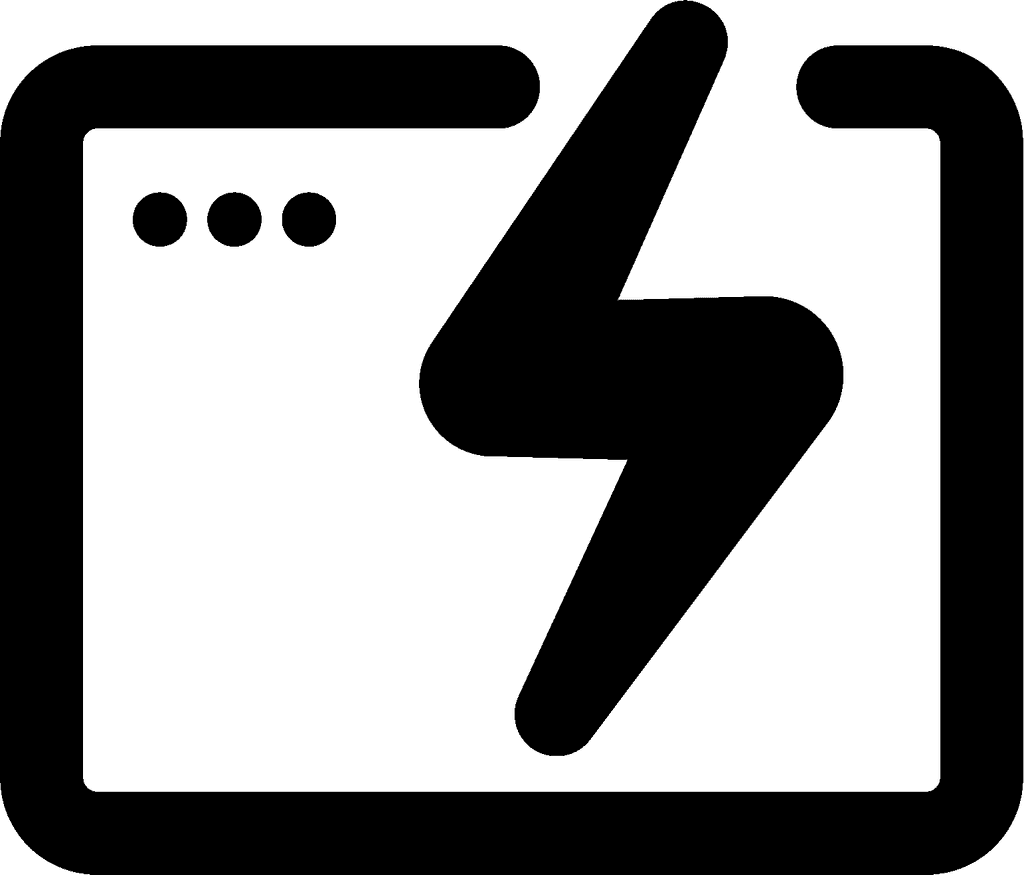AI Tools for Small Business: Boosting Efficiency and Growth
AI tools are revolutionizing how small businesses operate. From automating routine tasks to providing data-driven insights, these technologies offer entrepreneurs powerful ways to boost productivity and grow their ventures. Small businesses that leverage AI tools can gain a competitive edge by streamlining operations, improving customer service, and making more informed decisions.
Startups and established small businesses alike are finding innovative applications for AI. Machine learning algorithms can analyze customer data to predict trends and personalize marketing efforts. Natural language processing enables chatbots to handle basic customer inquiries 24/7. Computer vision technology automates quality control in manufacturing.
The adoption of AI tools is becoming increasingly accessible and affordable for small businesses. Cloud-based platforms allow entrepreneurs to tap into sophisticated AI capabilities without major upfront investments. As these technologies continue to evolve, they present exciting opportunities for small businesses to scale efficiently and compete in the digital economy.

The Role of AI in Modern Small Businesses
Artificial intelligence is transforming how small businesses operate. AI tools boost productivity, handle repetitive tasks, and provide valuable data insights.
Enhancing Productivity and Efficiency
AI-powered tools streamline workflows and increase output. Smart scheduling assistants optimize employee calendars, reducing time spent on coordination. Natural language processing enables faster document review and contract analysis.
AI chatbots provide 24/7 customer support, freeing up staff for complex issues. Machine learning algorithms personalize marketing campaigns, improving conversion rates. Predictive maintenance systems minimize equipment downtime.
These AI applications allow small businesses to accomplish more with limited resources. Employees can focus on high-value work while AI handles routine operations.
Automating Repetitive Tasks
AI excels at taking over mundane, repetitive tasks. Robotic process automation (RPA) handles data entry, invoice processing, and inventory management. This reduces errors and speeds up backend operations.
AI-powered voice assistants transcribe meetings and generate summaries. Computer vision systems automate quality control in manufacturing. Machine learning algorithms sort and categorize incoming emails.
By automating these tasks, AI frees up valuable employee time. Small businesses can redirect human talent to creative problem-solving and strategic planning.
Generating Data-Driven Insights
AI analyzes vast amounts of data to uncover actionable insights. Machine learning models identify sales trends and forecast demand. This helps small businesses optimize inventory and pricing.
Natural language processing tools analyze customer feedback across channels. They highlight common issues and sentiment trends. Predictive analytics forecast churn risk, allowing proactive retention efforts.
AI-powered business intelligence dashboards visualize key metrics. This enables faster, more informed decision-making. Small businesses can spot opportunities and address challenges more quickly.
AI Tools for Customer Interaction and Support
AI-powered solutions are transforming how small businesses interact with customers and manage relationships. These tools offer enhanced efficiency, personalization, and round-the-clock support.
Leveraging Chatbots for Customer Service
Chatbots have become essential for small businesses seeking to provide instant customer support. These AI-powered assistants can handle routine inquiries, freeing up human agents for more complex issues.
Platforms like Drift and ChatSpot offer customizable chatbots that integrate with existing websites and messaging apps. These tools can answer FAQs, schedule appointments, and even process simple transactions.
AI chatbots learn from interactions, improving their responses over time. They can handle multiple conversations simultaneously, ensuring no customer is left waiting.
For small businesses with limited staff, chatbots provide 24/7 availability without the need for constant human monitoring.
AI-Powered CRM Platforms for Customer Relationship Management
CRM systems enhanced with AI capabilities offer small businesses powerful tools for managing customer interactions. Platforms like HubSpot use AI to analyze customer data and provide actionable insights.
These systems can predict customer behavior, identify sales opportunities, and automate personalized marketing campaigns. AI-powered CRMs also assist in lead scoring, helping businesses prioritize their sales efforts.
By automating routine tasks, AI-enhanced CRMs allow small business teams to focus on building relationships rather than manual data entry. These platforms often integrate with other business tools, creating a seamless workflow.
AI for Enhancement of Customer Experience
AI tools are revolutionizing how small businesses enhance customer experiences. Personalization engines use AI to tailor product recommendations and content to individual customer preferences.
Voice recognition and natural language processing technologies enable more natural interactions through voice assistants and phone systems. This technology can route calls more efficiently and provide voice-based self-service options.
AI-powered analytics tools help businesses understand customer sentiment by analyzing feedback across various channels. This insight allows companies to address issues proactively and improve their products or services.
Predictive AI models can anticipate customer needs, enabling businesses to offer proactive support and personalized offers at the right time.
Marketing and Sales Optimization Through AI
AI tools are transforming how small businesses approach marketing and sales. These technologies enable data-driven strategies, automate processes, and enhance customer interactions.
Revolutionizing Marketing Strategies with AI
AI-powered marketing tools analyze vast amounts of data to identify trends and patterns. This allows businesses to create highly targeted campaigns. Machine learning algorithms optimize ad placements and content delivery across channels.
AI chatbots engage website visitors 24/7, answering questions and guiding potential customers. These tools free up human staff for more complex tasks.
Natural language processing helps marketers understand customer sentiment from social media and reviews. This insight informs product development and messaging strategies.
Predictive Analytics for Sales Performance
AI-driven predictive analytics forecast future sales trends based on historical data. This helps businesses allocate resources effectively and set realistic targets.
Machine learning models identify high-value leads, allowing sales teams to focus their efforts. AI tools can also suggest the best times to contact prospects and recommend personalized pitches.
Sales managers use AI dashboards to track team performance in real-time. These tools highlight areas for improvement and automate reporting tasks.
AI Enablers of Personalized Customer Experiences
AI analyzes customer behavior to create detailed profiles. This enables businesses to deliver tailored product recommendations and content.
Recommendation engines use machine learning to suggest relevant items based on past purchases and browsing history. This increases cross-selling and upselling opportunities.
AI-powered email marketing tools automatically segment audiences and personalize messages. They determine the best send times for each recipient to maximize open rates.
Voice assistants and chatbots provide instant, personalized customer support. These AI tools learn from each interaction to improve their responses over time.
Content Creation and Management Using AI
AI tools empower small businesses to produce high-quality content efficiently and manage their online presence effectively. These technologies streamline writing, social media management, and email communication.
AI-Based Writing Assistants for Copy and Blog Posts
AI writing assistants like Grammarly and Jasper.ai help small businesses create polished copy and engaging blog posts. Grammarly offers real-time grammar and spelling checks, enhancing the quality of written content.
Jasper.ai generates original text based on user prompts, accelerating the writing process for various formats. This tool can produce product descriptions, social media captions, and long-form articles.
These AI assistants analyze successful content to suggest improvements in tone, style, and readability. They also provide keyword optimization suggestions to boost search engine visibility.
Managing Social Media Presence with AI Tools
AI-powered social media management tools automate posting schedules and content creation. These platforms analyze audience engagement patterns to determine optimal posting times.
Some AI tools generate image and video content for social media posts. Pictory, for example, creates short video clips from longer content, ideal for platforms like Instagram and TikTok.
AI algorithms can also identify trending topics and suggest relevant hashtags to increase post visibility. These tools often provide analytics to track post performance and audience growth.
Automating Email Communication
AI-driven email marketing platforms like Mailchimp use machine learning to optimize email campaigns. These tools analyze subscriber behavior to personalize content and send times for each recipient.
AI assistants can draft email copy, suggesting subject lines and body text based on campaign goals. They often include A/B testing features to refine email strategies over time.
Automated email sequences triggered by specific user actions help nurture leads and maintain customer relationships. AI tools can segment email lists based on subscriber data, ensuring targeted messaging.
Operational Efficiency through AI
AI tools offer small businesses powerful ways to streamline operations, manage finances, and enhance project management. These technologies can significantly boost productivity and decision-making across key business functions.
Streamlining Business Workflows with AI
AI-powered workflow automation tools can transform how small businesses operate. Machine learning algorithms analyze existing processes and suggest optimizations, reducing manual tasks and human error.
Tools like ClickUp and Notion AI integrate AI capabilities to automate task assignments, prioritize work, and predict project timelines. This allows teams to focus on high-value activities rather than repetitive tasks.
AI can also improve customer service workflows by handling routine inquiries and routing complex issues to the appropriate staff. This reduces response times and improves customer satisfaction.
AI in Financial Management and Performance Tracking
AI tools offer small businesses advanced financial management and performance tracking capabilities. Machine learning algorithms can analyze financial data to identify trends, forecast cash flow, and flag potential issues.
These tools can automate bookkeeping tasks, categorize expenses, and generate financial reports. This saves time and provides more accurate, real-time financial insights.
AI-powered performance tracking tools analyze data from various sources to measure key performance indicators (KPIs). They can identify areas for improvement and suggest data-driven strategies to boost performance.
Enhanced Project Management with AI Technologies
AI technologies are revolutionizing project management for small businesses. Machine learning algorithms can analyze historical project data to predict potential risks and bottlenecks.
AI-powered scheduling tools optimize resource allocation and task prioritization. They can automatically adjust project timelines based on progress and unforeseen events.
Collaboration tools with AI capabilities can improve team communication by summarizing discussions, extracting action items, and even suggesting relevant resources. This ensures everyone stays aligned and informed throughout the project lifecycle.
Advanced AI Technologies for Small Businesses
Small businesses can now leverage powerful AI capabilities that were once reserved for large enterprises. These technologies enable enhanced communication, improved product marketing, and innovative content creation.
Natural Language Processing for Better Communication
Natural Language Processing (NLP) empowers small businesses to interact more effectively with customers. AI-powered chatbots can handle customer inquiries 24/7, freeing up staff for more complex tasks. These chatbots understand context and nuance, providing accurate responses to a wide range of questions.
NLP also enhances email marketing by analyzing customer sentiment and tailoring messages accordingly. This leads to more personalized and effective communication strategies.
Translation services powered by NLP break down language barriers, allowing small businesses to expand into international markets with ease. These tools can quickly and accurately translate websites, product descriptions, and customer support materials.
Computer Vision and AI in Product Descriptions
Computer Vision technology revolutionizes how small businesses showcase their products. AI-powered image recognition can automatically tag and categorize product images, making them easier to find in search results.
These systems can analyze product photos to generate detailed descriptions, highlighting key features and specifications. This saves time for small business owners and ensures consistency across product listings.
AI can also detect and flag low-quality or inappropriate images, maintaining a professional appearance on e-commerce platforms. Some advanced systems even offer virtual try-on experiences for clothing and accessories, enhancing the online shopping experience.
Generative AI and Its Applications
Generative AI tools like Midjourney, DALL-E, and Stable Diffusion are transforming content creation for small businesses. These deep learning models can generate unique images, logos, and marketing materials based on text prompts.
Small businesses can use these tools to create eye-catching social media posts, product mock-ups, and promotional materials without the need for expensive design software or expertise.
Google Bard and similar AI writing assistants help craft engaging blog posts, product descriptions, and marketing copy. These tools can generate ideas, improve writing style, and ensure grammatical accuracy.
Generative AI also enables small businesses to create personalized content at scale, tailoring marketing materials to individual customer preferences and behaviors.
Challenges and Considerations for Implementing AI
Implementing AI in small businesses comes with several key challenges and considerations. These factors require careful attention to ensure successful integration and responsible use of AI technologies.
Understanding the Limitations of AI Tools
AI tools have significant capabilities, but they also have limitations. Generative Pre-trained Transformers, for example, can produce content quickly but may lack context or make factual errors. Small businesses must recognize that AI cannot fully replace human intelligence and judgment.
AI systems often struggle with tasks requiring empathy, creativity, or complex decision-making. They may also have biases embedded in their training data, leading to skewed results. Developers need to address these limitations to create more reliable AI tools.
Regular evaluation and testing of AI systems are crucial. Businesses should implement human oversight to catch and correct AI-generated errors. This approach ensures the quality and accuracy of AI outputs.
Ensuring Compliance and Ethical Use of AI
Small businesses must navigate legal and ethical considerations when implementing AI. Data privacy regulations, such as GDPR, require careful handling of customer information used in AI systems. Compliance with these laws is essential to avoid legal issues.
Ethical use of AI involves transparency about its application. Businesses should disclose when AI is being used, especially in customer interactions. This practice builds trust and allows customers to make informed choices about engaging with AI-powered services.
Lawyers can help small businesses understand the legal landscape surrounding AI use. They can provide guidance on intellectual property rights, liability issues, and contractual obligations related to AI implementation.
Adopting AI Responsibly for Customer Trust
Maintaining customer trust is crucial when adopting AI technologies. Small businesses should prioritize data security and privacy to protect customer information used in AI systems. Clear communication about data usage and AI involvement in services helps build transparency.
AI content should be clearly labeled to avoid misleading customers. This practice is particularly important in areas like customer service chatbots or AI-generated marketing materials. Businesses can offer options for customers to opt-out of AI interactions if desired.
Regular training for employees on responsible AI use is essential. This ensures that staff can effectively manage AI tools and address any customer concerns. By prioritizing responsible AI adoption, small businesses can leverage these technologies while maintaining strong customer relationships.
Frequently Asked Questions
AI tools offer numerous benefits for small businesses, from enhancing productivity to improving marketing and sales strategies. These solutions can provide competitive advantages and streamline operations.
What are the top AI tools available for small business productivity?
Trello uses AI to automate task management and workflow organization. Grammarly leverages AI to improve writing quality and communication. Zapier employs AI to connect various apps and automate repetitive tasks.
How can AI enhance marketing strategies for small businesses?
AI-powered tools like Mailchimp use predictive analytics to optimize email campaigns. Canva's AI features assist in creating professional-looking marketing materials. Google Analytics employs machine learning to provide insights into customer behavior and preferences.
Which AI tools are recommended for startups to improve their operations?
Notion integrates AI to enhance project management and collaboration. QuickBooks uses AI for automated bookkeeping and financial forecasting. Salesforce Einstein employs AI to improve customer relationship management.
Are there any AI tools that small businesses can use at no cost?
ChatGPT offers a free tier for generating content and answering customer queries. Google Bard provides free AI-powered language processing capabilities. Otter.ai offers limited free transcription services using AI technology.
What are the most effective AI solutions for increasing sales in small businesses?
HubSpot's AI-powered CRM helps businesses nurture leads and close deals more effectively. Shopify's AI tools optimize e-commerce operations and personalize customer experiences. Drift uses AI chatbots to engage website visitors and generate qualified leads.
In what ways can AI be leveraged by small businesses to gain a competitive advantage?
AI-powered market research tools help businesses identify trends and opportunities. Predictive analytics assist in forecasting demand and optimizing inventory management. Machine learning algorithms can personalize customer experiences, increasing satisfaction and loyalty.

Build a more powerful help desk with Risotto
Minimize Tickets and Maximize Efficiency
Simplify IAM and Strengthen Security
Transform Slack into a help desk for every department
Schedule your free demo



